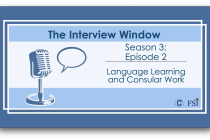Human Development Colloquium: Peter Steiner (HDQM)
Why asking causal questions is important for applied research with experimental and observational data
Abstract: To evaluate the effect of an intervention on an outcome of interest, researchers regularly rely on randomized controlled trials (RCTs). But if an RCT breaks due to noncompliance or attrition, or if observational data must be used because RCTs are not possible, should researchers avoid pursuing causal research questions and estimate associational rather than causal effects? In this talk, I argue that asking causal questions is critical to research with both experimental and observational data. Without clear causal hypotheses it is difficult to select the most appropriate statistical analysis or the right set of control variables to eliminate confounding bias induced by treatment self-selection or differential attrition. Using a simplified example from child development research, I will illustrate how a causal research question together with a causal graph (representing the presumed data-generating process of the data at hand) enables a targeted and meaningful statistical analysis. The talk also highlights how causal graphs help researchers to defend the assumptions necessary for a causal interpretation of results.
Bio: Dr. Peter M. Steiner is a Professor in the Department of Human Development and Quantitative Methodology at the University of Maryland, College Park. His research mainly focuses on causal inference with (quasi)-experimental designs, graphical models (directed acyclic graphs), and causal replication studies. He has been teaching courses and workshops on Causal Inference and Evaluation Research, Graphical Models for Causal Inference, and Causal Mediation Analysis. His methodological and applied research has been regularly funded by the Institute of Education Sciences and the National Science Foundation. In 2019, he received the Causality in Statistics Education Award of the American Statistical Association.










